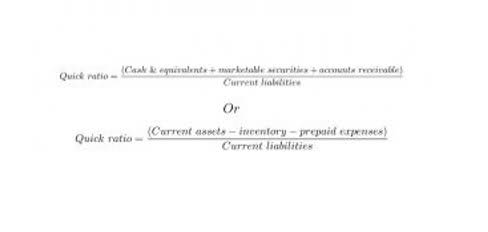
Inventory turnover is a financial ratio that shows the number of times a company has sold and replaced inventory over a given period. Inventory turnover analysis involves the process of studying this ratio and coming up with enough information for better business administration. Managerial accounting statements, on the other hand, are presented at any period of time that is convenient for the productive managerial accounting management of a business. They may be fixed over a period of time but this fixed period is entirely flexible and comes at different times and forms within a month. Financial accounting is only aimed at keeping historical data about all the financial transactions a company has engaged in. It is responsible for producing financial statements for external use such as balance sheets and income statements.
Financial versus Management accounting
- This includes increased job opportunities, higher annual earnings, and distinction within your industry.
- Break-even point analysis is useful for determining price points for products and services.
- It is responsible for producing financial statements for external use such as balance sheets and income statements.
- Constraint analysis helps companies run more smoothly and efficiently by identifying errors in the production of goods and services.
- Financial accounting activities are regulated by external standards as opposed to the more flexible requirements placed on managerial accounting procedures.
- Our team of reviewers are established professionals with decades of experience in areas of personal finance and hold many advanced degrees and certifications.
Managerial accounting is a very important accounting type for businesses in highly competitive business environments. It helps with operational data to quickly and easily make more accurate business decisions. No, managerial accountants are not legally obligated to follow GAAP because the documents they produce are not regulated by GAAP. Managerial accounting also involves reviewing the trendline for certain expenses and investigating unusual variances or deviations. It is important to review this information regularly because expenses that vary considerably from what is typically expected are commonly questioned during external financial audits. This field of accounting also utilizes previous period information to calculate and project future financial information.
- Also known as marginal analysis, this tool assesses the incremental costs and benefits of different alternatives.
- Product costing deals with determining the total costs involved in the production of a good or service.
- The most significant recent direction in managerial accounting is throughput accounting; which recognizes the interdependencies of modern production processes.
- This field of accounting also utilizes previous period information to calculate and project future financial information.
- Financial accountants are also subject to compliance with government rules and regulations, such as the generally accepted accounting principles (GAAP), whereas managerial accountants are not.
- As managers navigate the complexities of business, a solid grasp of fundamental managerial accounting concepts is crucial.
- A separate practice known as managerial accounting refers to the discipline of record-keeping with an eye towards budgeting and performance measurement, typically conducted by managers.
Small Business Resources
Accrual accounting provides the financial position of a company at the end of a particular period. However, each transaction within this period is not accounted for with accrual accounting alone. Cash flow refers to the different inflows of cash into a company and outflows of cash from a company.
Jobs in Managerial Accounting
Even if not a requirement for your degree program, seek internship options if possible. Learn about managerial accounting the different types, careers, and how to enter this field. These professionals are skilled in forecasting, which involves gathering and analyzing current and historical data to draw conclusions about potential future outcomes. Managerial accountants can use constraint analysis to reduce operational inefficiencies by leveraging historical data to streamline processes. A company’s control over bottlenecks has a direct correlation to profitability, so this is a big one.
Are personal finances considered financial accounting or managerial accounting?
- This comprehensive approach ensures a more well-rounded assessment of organizational success.
- This is because your personal finances often involve the preparation of financial statements to show income and expenses, and tracking your net worth.
- The final interpretations presented to internal administrators offer clues to making accurate decisions that affect the future operations of a business.
- Also known as cost accounting, management accounting is the process of identifying, analyzing, interpreting and communicating information to managers to help achieve business goals.
- Financial accounting is the process of preparing and presenting quarterly or annual financial information for external use.
A financial accounting system is aimed at external decision-makers such as investors, regulators, and creditors, while a managerial accounting system is aimed at internal decision-makers such as managers. Internal management accounting systems are used to provide critical information to management to be used in operational business decision-making. A manufacturing company might use these systems to help in the costing and managing of their process. A hospital might use management accounting systems to assist them in insurance billing and other in-house requirements. Financial accounting has some internal uses as well, but its focus is on informing those outside of a company. The final accounts or financial statements produced through financial accounting are designed to disclose the firm’s business performance and financial health.

Standards of Ethical Conduct for Management Accountants (Code of Ethics)

The Controller, or Chief Management Accountant, is responsible for all accounting functions, including providing relevant information to managers at all levels of management. The two-part CMA exam will test your knowledge of financial planning, performance, and analytics, as well as strategic financial management. Requirements to enroll in the CMA program include membership to the IMA, payment of a program fee, a bachelor’s degree from an accredited university, and at least two years of consecutive professional experience. The benefits for your company will depend on its size and industry and individual managers’ practices and preferences. Managerial accountants are not legally obligated to follow GAAP because the documents they produce are not regulated by GAAP.
Marginal costing also helps businesses determine the best use of raw materials and the optimal sales mix for products. Marginal Costing is another type of managerial accounting that deals with the cost of goods. It involves determining the impact of adding one additional unit of a product to the purchase or production order.
![]()
There are a variety of ways to keep current and continue to build one’s knowledge base in the field of management accounting. Certified Management Accountants (CMAs) are required to achieve continuing education hours every year, similar to a Certified Public Accountant. A company may also have research and training materials available for use in a corporate owned library. This is more common in Fortune 500 companies who have the resources to fund this type of training medium.